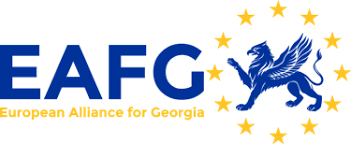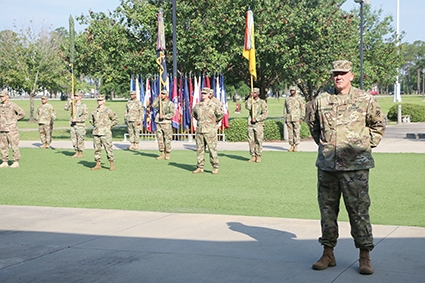The Georgians in Afghanistan
Exclusive interview
Georgia is the number one non-member contributor when it comes to the NATO Mission in Afghanistan: this is one of the more oft mentioned statements when it comes to Georgia’s EuroAtlantic aspirations. And while some might think that the ongoing wait for MAP suggests a lack of appreciation for Georgia’s efforts, the military leadership of the Alliance are anything but. While reporting on the NATO Ministerial last month in the scope of our ‘Messages from Brussels’ series, we spoke to US Colonel Thomas Gukeisen, one of the youngest outgoing commanders of the US forces in Afghanistan, about the quality and experience of Georgian troops.
What can you say about the Georgians who are fighting there?
I’m very thankful to the country of Georgia. I sleep better at night because they guard me on the base I’m on in Kabul, at the Resolute Support headquarters. I know they get a lot of training before they come. I’ve seen five or six Georgian rotations and I’m very impressed by their professionalism, their attention to detail, their desire for the success of the mission. Any incident or any potential incident occurs, they automatically take the initiative and increase wherever force protection is necessary. It allows me to work and do my job knowing that Georgia is supplying the force protection on the Kabul base.
Georgia contributes quite a bit to the mission, more than many other countries in the NATO alliance. I’m thankful for that. It’s a lot for the country of Georgia to commit so many troops in support of the missions.
How well prepared are Georgian troops?
Very well prepared. They get trained in Georgia with US Marine Corps before they come, so they are always highly trained and ready to execute the mission. And again, I’ve seen six rotations of them and I am very proud to say that Georgians were there protecting many of our NATO alliance members and 38 other nations, they were guarding all of us. They are trained, well prepared and they execute the mission flawlessly.
We hear the Georgians have a chapel on the base
One day at nine o’clock, I kept hearing this bell from my room. When I talked to Georgians, they say, you know, we’ve got a little chapel there for services; they ring the bell to let people know that the church is in session.
Have you ever been to Georgia?
Not yet. I’ve been in Afghanistan for almost two years. So, having a little vacation to Georgia when I finish my mission here sounds wonderful.
What’s the attitude of the local population towards US and Georgian forces?
I think they’re very grateful. You know that NATO and many others contribute both militarily and financially. And I think we’ve seen a change in the attitude of people; people are standing up now, both women and kids; they say we’re done with war; we want the war to be over.
How close do you think we are now to peace in Afghanistan?
Closer than we’ve ever been. We had President Ghani’s offer of peace on 20 February and the Kabul Process. On 14 February, the Taliban wrote a letter to America seeking peace. If you look at those two documents, they are closely aligned, more than anything. You have messages from some Talibans seeking peace, you have the Tashkent conference that the international community reaffirmed, the foreign ministerial just now. So you have the international community ready and now it’s up to the Taliban and Afghan government to work out the peculiarities of the peace deal.
How useful will the knowledge and experience the Georgian forces got in Afghanistan be when they come back home?
Any military force that actually goes on a mission abroad learns quite a bit; they learn about themselves, they learn how to work in operability with other ally countries; so I think the Georgians will be much more prepared by supporting this mission, again it’s about working with other countries, with other nations and the training they get, it’s always good. You can train at home but when you’re abroad, that makes the training that much more real.

This article was prepared in the scope of “Messages from Brussels” series, a project by European Alliance for Georgia, a Brussels-based advocacy organization dedicated to “Bringing more Georgia into Europe.”
By Vazha Tavberidze












